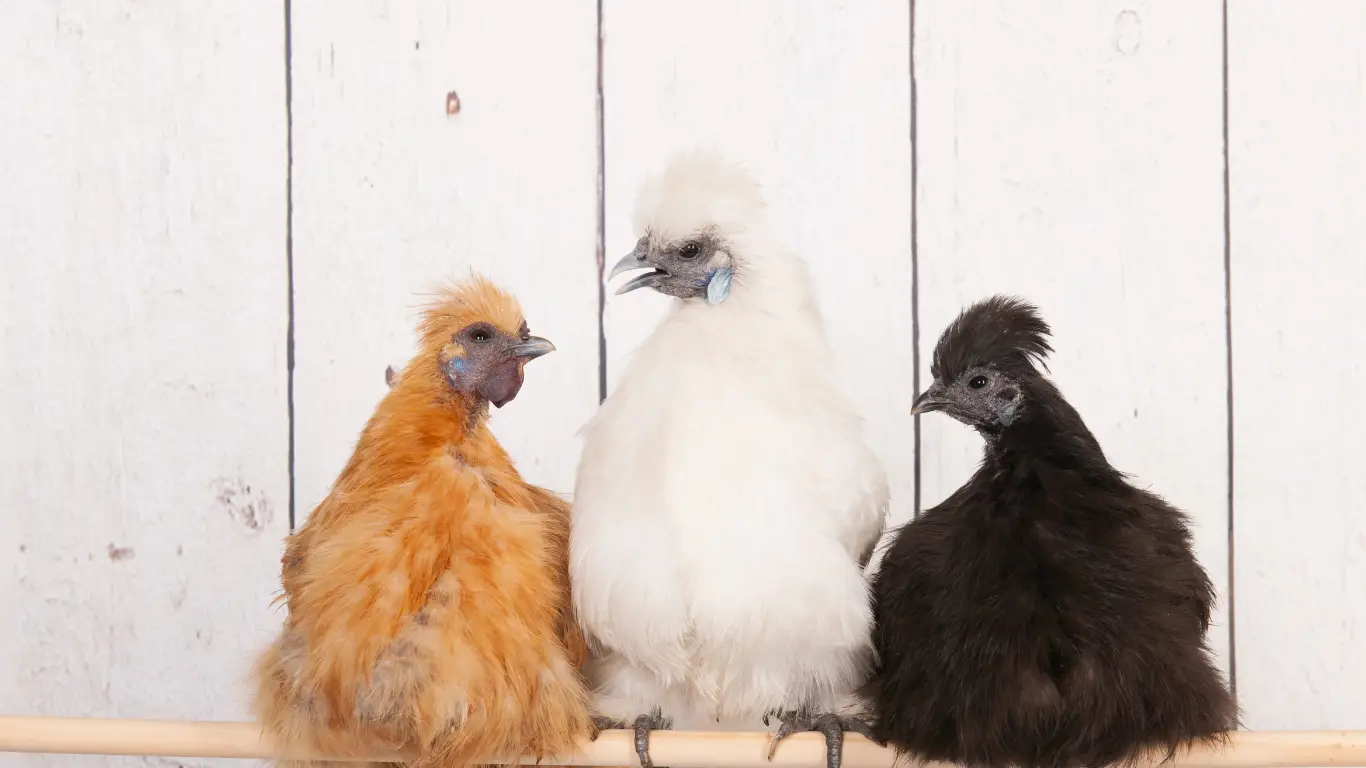Share via:
Does My Chicken Have Ascites or Egg Binding?
- Summary
- Deep Dive
- FAQs

-
-
-
Summary – Is it Ascites or Egg Binding?
It can be difficult to diagnose backyard chickens, especially when symptoms can overlap. Keep reading to learn how to tell if your chicken has ascites or egg binding. Ascites, also known as "water belly," is when fluid builds up in the tummy, often due to heart or lung issues from poor air quality, fast growth, or infections. Symptoms include a soft, swollen belly, trouble breathing, and tiredness. Treatment involves draining the fluid, improving living conditions, and fixing the underlying problems. Egg binding happens when a hen can't lay an egg, usually due to poor diet, large eggs, stress, or being overweight. This can cause straining, tiredness, and a hard, swollen belly near the vent, and it can be treated with warm baths, gentle massage, calcium supplements, or vet care. You can reduce the likelihood of these problems with a good diet, proper ventilation, healthy weight control, and a calm environment.
Keep reading for a deeper dive and FAQs.
Is it Ascites or Egg Binding?
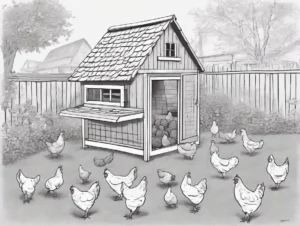
Just like any pet or animal you have to be aware of chicken health issues. Two common but potentially serious conditions are ascites and egg binding. While they may present some overlapping symptoms, these conditions have distinct causes and treatments.
A beginner’s guide to backyard chickens can be helpful, but those typically don’t have enough detail to help you diagnose the difference between Ascites or egg binding. Being able to identify and address them promptly can make a significant difference in your chicken’s health and welfare.
-
-
- Ascites, or “water belly,” involves fluid buildup in the abdomen, often stemming from heart issues, poor ventilation, or rapid growth.
- Egg binding occurs when a hen cannot lay an egg, frequently due to nutritional deficiencies, oversized eggs, stress, or obesity.
-
What is Ascites?
Ascites, also known as “water belly,” occurs when fluid accumulates in the abdominal cavity of a chicken. This condition is often a result of pulmonary hypertension, which can lead to congestive heart failure. Ascites is commonly seen in broiler chickens, particularly those bred for rapid growth, but it can also occur in other breeds.
Causes of Ascites
-
- Heart issues: Pulmonary hypertension is the primary cause, often due to genetic predisposition.
-
- Poor ventilation: High ammonia levels or insufficient airflow in coops can stress the respiratory system.
-
- Rapid growth rates: Fast-growing chickens, such as commercial broilers, may develop heart and lung problems.
-
- Infections: Diseases like avian influenza or Newcastle disease can cause secondary ascites.
-
- Altitude: Chickens kept at high altitudes may have difficulty adapting to lower oxygen levels.
Symptoms of Ascites
-
- Swollen abdomen: The most obvious sign is a bloated or distended belly that may feel soft or fluid-filled to the touch.
-
- Difficulty breathing: Chickens with ascites often struggle to breathe, particularly when exerting themselves.
-
- Lethargy: Affected chickens may become less active and spend more time sitting.
-
- Pale comb and wattles: Due to oxygen deprivation, combs and wattles might lose their bright red coloration.
What is Egg Binding?
Egg binding occurs when a hen is unable to pass an egg through her oviduct. This condition is particularly common in young hens just starting to lay, older hens with calcium deficiencies, or hens that are overweight.
Causes of Egg Binding
-
- Nutritional imbalances: Inadequate calcium, vitamin D, or other essential nutrients can weaken the muscles needed for laying eggs.
-
- Large or misshapen eggs: Oversized or irregularly shaped eggs may become stuck in the reproductive tract.
-
- Stress: Sudden changes in environment, predation threats, or overcrowding can disrupt the laying process.
-
- Obesity: Excess weight can make it harder for a hen to expel eggs.
Symptoms of Egg Binding
-
- Straining: A hen may be seen repeatedly attempting to push, often without success.
-
- Lethargy: Like ascites, egg-bound hens may become listless and avoid movement.
-
- Abnormal posture: An egg-bound hen might adopt a “penguin-like” stance, standing upright with her tail down.
-
- Lack of appetite: These hens often stop eating or drinking.
-
- Palpable egg: Gently feeling the abdomen may reveal a hard, round object near the vent.
How to Differentiate Between Ascites and Egg Binding
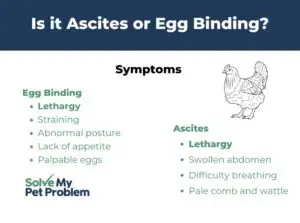
While both egg binding and Ascites can cause abdominal swelling and lethargy, there are critical differences:
-
- Texture of the abdomen: In ascites, the swelling is due to fluid, so the abdomen feels soft and squishy. In egg binding, the abdomen is firm and hard because of the stuck egg.
-
- Location of swelling: Ascites causes generalized abdominal swelling, while egg binding usually creates swelling closer to the vent.
-
- Breathing difficulties: While both conditions can impact breathing, it is more pronounced in ascites due to pressure on the lungs and heart.
-
- Egg production history: If the hen has not laid eggs recently or shows signs of laying difficulties, egg binding is more likely.
Treating Ascites or Egg Binding
Treatment for Ascites
-
- Immediate care: A veterinarian may use a sterile syringe to drain the accumulated fluid from the abdomen. This is a temporary relief measure and does not address the underlying cause.
-
- Improve living conditions: Ensure the coop has proper ventilation and reduce ammonia buildup by cleaning regularly.
-
- Dietary adjustments: Feed your chickens a balanced diet tailored to their growth and production stages. Reducing growth rates in broilers can help prevent pulmonary hypertension.
-
- Veterinary care: Seek professional guidance to identify and manage underlying conditions, such as infections or organ failure.
Treatment for Egg Binding
-
- Warm bath: Soaking the hen in warm water for 15-20 minutes can help relax her muscles and encourage the egg to pass.
-
- Gentle massage: Lubricate the vent area and gently massage the abdomen to help move the egg down the oviduct.
-
- Increase calcium intake: Provide a calcium supplement to strengthen the hen’s muscles and improve contractions.
-
- Isolate and monitor: Place the hen in a quiet, dimly lit area to reduce stress and allow her to focus on passing the egg.
-
- Veterinary intervention: If the egg cannot be passed naturally, a vet may need to manually remove it or perform more invasive procedures.
Prevention Tips for Ascites or Egg Binding
For Ascites:
-
- Keep your chickens at a healthy weight, especially broilers.
-
- Maintain excellent coop ventilation.
-
- Provide a well-balanced diet and appropriate energy levels.
-
- Monitor for signs of respiratory diseases and address them early.
For Egg Binding:
-
- Feed hens a calcium-rich diet, supplemented with oyster shell or similar sources.
-
- Avoid overfeeding to prevent obesity.
-
- Provide clean nesting areas to reduce stress during laying.
-
- Ensure consistent access to clean water.
Final Thoughts
Chickens are resilient creatures, but conditions like ascites or egg binding require prompt attention. Regular observation, good nutrition, and proper care can prevent these issues and help ensure your flock remains healthy and productive. When in doubt, consulting a veterinarian experienced in poultry care can provide critical guidance and improve outcomes for your birds.

-
-
-
Ascites or Egg Binding FAQs
What is ascites in chickens?
Ascites, commonly called “water belly,” is a condition where fluid builds up in a chicken’s abdomen. This is usually caused by pulmonary hypertension, which can lead to heart failure. Ascites is more frequent in fast-growing broiler chickens.
What causes ascites?
Ascites can stem from various factors, including:
-
- Heart problems: Primarily pulmonary hypertension, often due to genetic predisposition.
-
- Poor ventilation: High ammonia levels and insufficient airflow in the coop.
-
- Rapid growth: Particularly in broiler chickens bred for fast growth.
-
- Infections: Diseases like avian influenza can cause secondary ascites.
-
- High altitude: Difficulty adjusting to lower oxygen levels.
What are the symptoms of egg binding?
Egg binding occurs when a hen can’t lay an egg. Symptoms include:
-
- Straining: The hen repeatedly tries to push but can’t pass the egg.
-
- Lethargy: The hen is inactive and may avoid movement.
-
- Abnormal posture: The hen stands upright with her tail down, resembling a penguin.
-
- Lack of appetite: The hen stops eating and drinking.
-
- Palpable egg: A hard, round object can be felt near the vent.
How can I tell if my chicken has ascites or egg binding?
Although both conditions cause abdominal swelling and lethargy, here’s how to differentiate:
-
- Abdominal texture: In ascites, the abdomen feels soft and fluid-filled. In egg binding, it feels firm due to the stuck egg.
-
- Swelling location: Ascites causes general swelling, while egg binding is localized near the vent.
-
- Breathing difficulties: More severe in ascites due to pressure on the lungs.
-
- Egg production: Egg binding is likely if the hen has recent laying difficulties.
How is egg binding treated?
Treatment options for egg binding include:
-
- Warm bath: Soaking the hen in warm water can relax her muscles.
-
- Gentle massage: Apply lubricant and massage the abdomen can help move the egg.
-
- Calcium supplements: Increase calcium intake to strengthen muscles.
-
- Isolation and monitoring: Reduce stress by placing the hen in a quiet, dimly lit space.
-
- Veterinary intervention: A vet may need to manually remove the egg if other methods fail.
What can I do to prevent ascites in my flock?
Preventing ascites involves:
-
- Maintain a healthy weight for your chickens, especially broilers.
-
- Ensure excellent coop ventilation and regular cleaning to reduce ammonia.
-
- Provide a balanced diet with appropriate energy levels.
-
- Monitor for and promptly addressing respiratory diseases.
What steps can I take to prevent egg binding?
You can help prevent egg binding by:
-
- Feed a calcium-rich diet, including supplements like oyster shell.
-
- Avoid overfeeding to prevent obesity.
-
- Provide clean, stress-free nesting areas.
-
- Ensure constant access to clean, fresh water.
When should I consult an avian veterinarian?
If you suspect your chicken has ascites or egg binding, or if home treatments aren’t successful, consult a veterinarian experienced in poultry care immediately. Early intervention can significantly improve outcomes for your birds.
Related Posts

Chicken Coop Ventilation – How Much Do You Need?
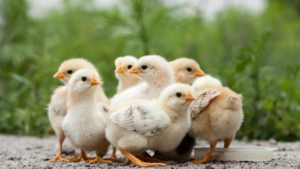
How to Build a Chicken Coop Door
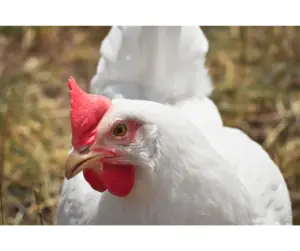
Green Diarrhea in Chickens: What It Means and How to Help
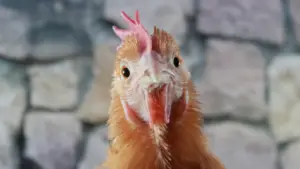
Understanding Diarrhea in Chickens: What You Need to Know
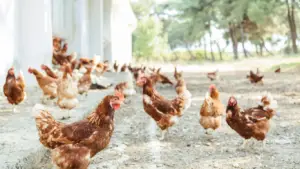
How to Build a Chicken Coop
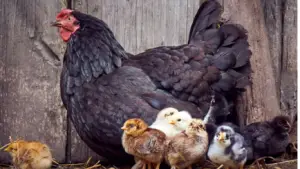
Backyard Chickens in the Winter
Share via:
